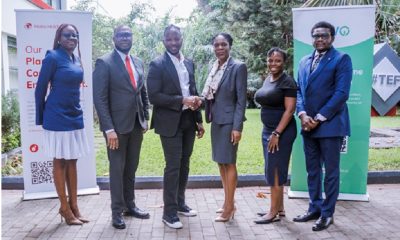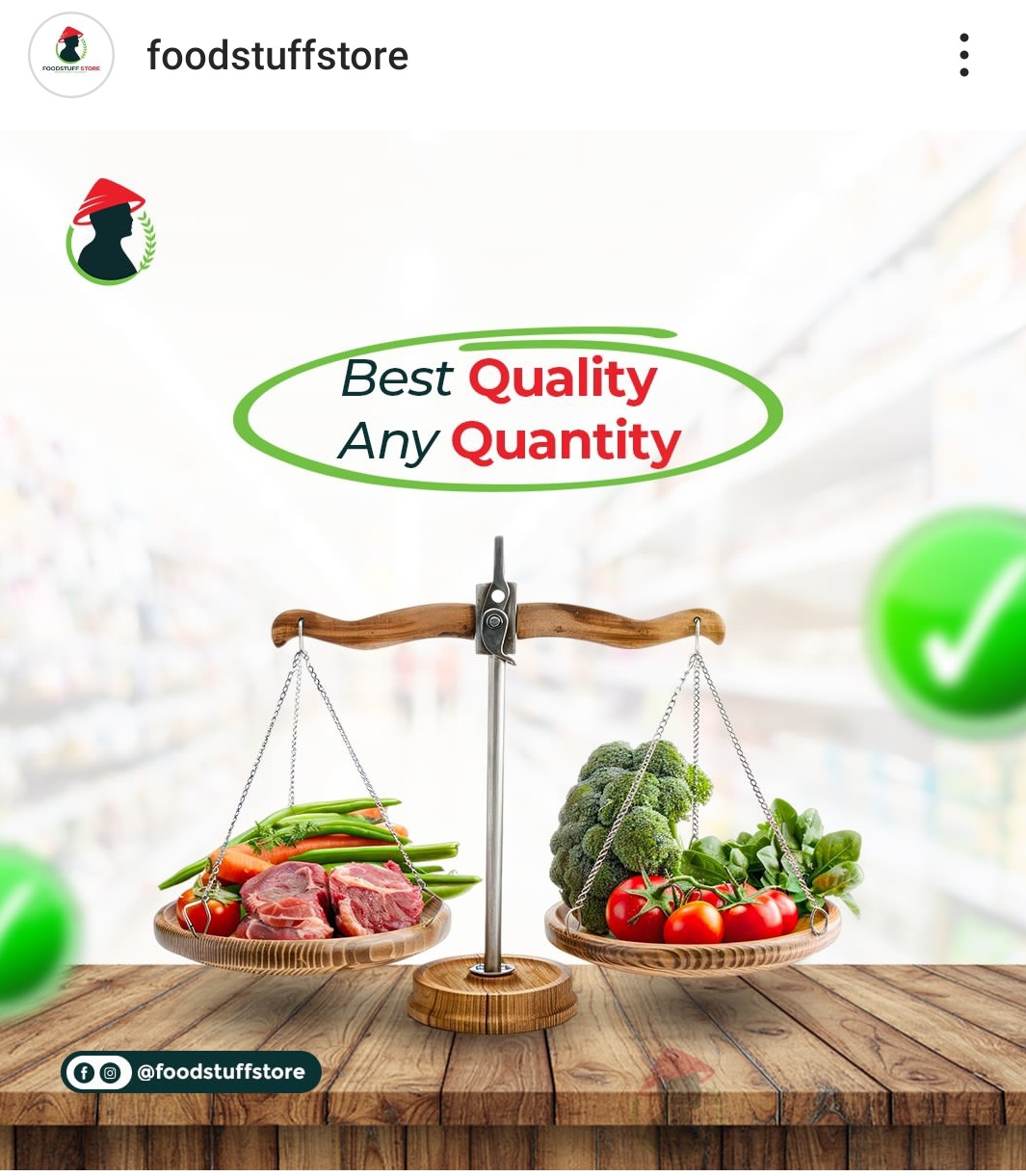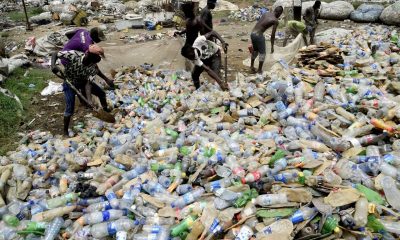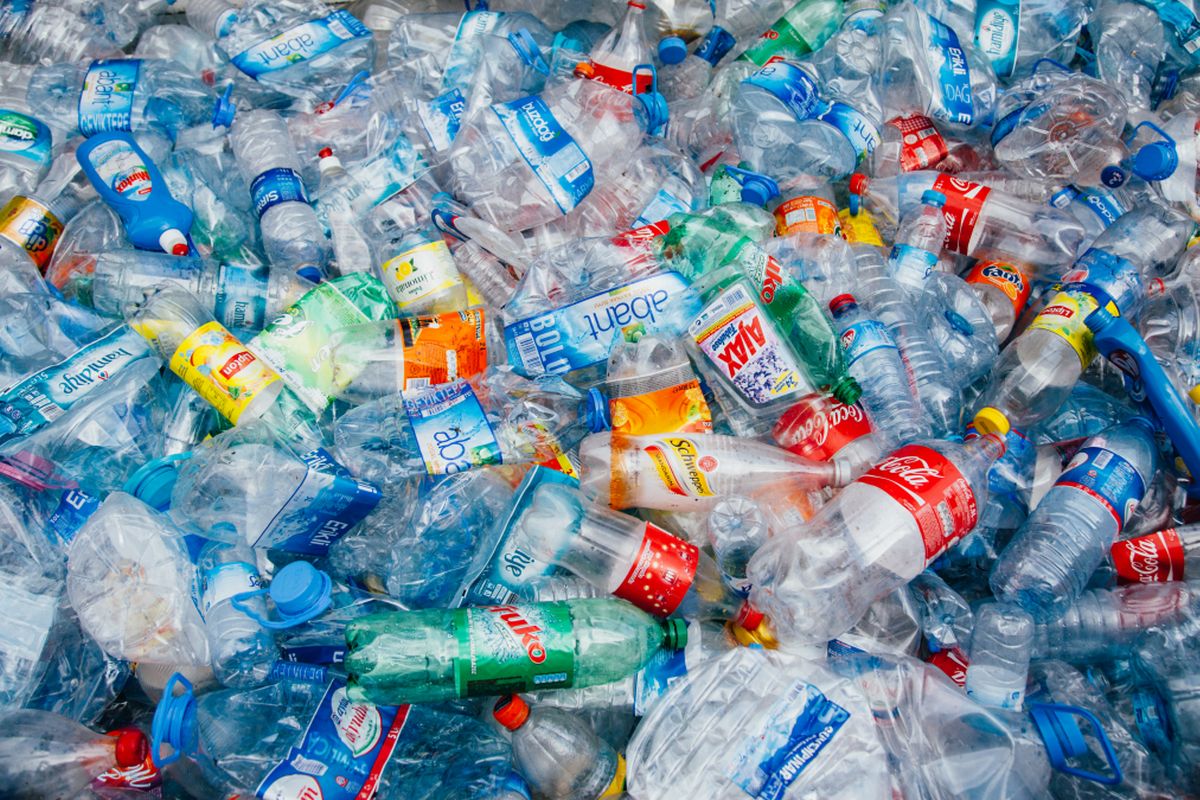General
Dow Partners Nigerian Firms to Tackle Plastic Waste
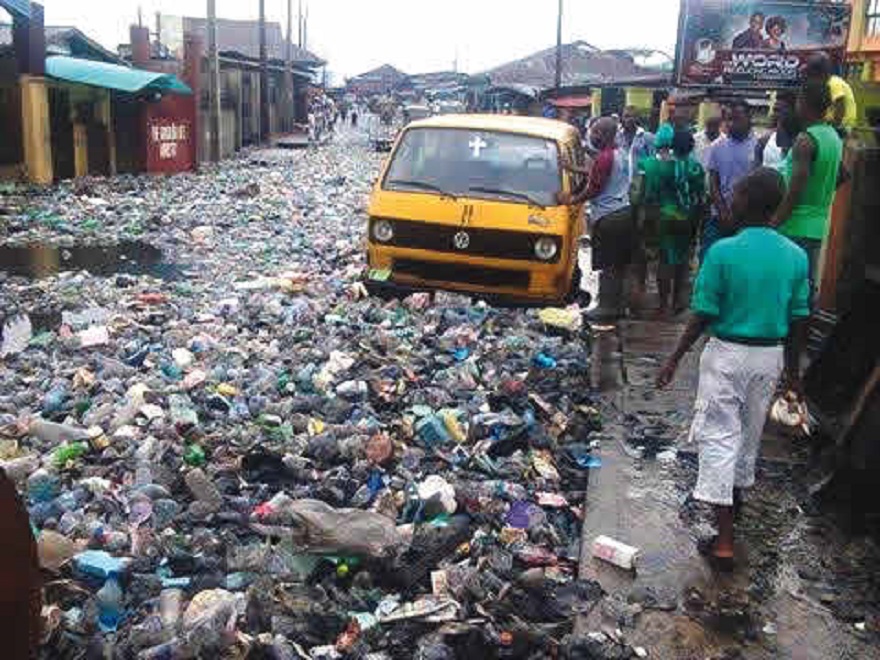
By Modupe Gbadeyanka
An initiative called Project ReflexNG, which aims to collect and recycle plastic waste in Lagos, Nigeria, has been launched by Dow in partnership with some local firms.
The Nigeria-based firms involved in this scheme include Omnik, RecylePoints and the Lagos Business School Sustainability Centre.
The parties will specifically recycle water sachets through a pilot program, designed to show that they can be collected and recycled to be utilised in new, quality packaging applications.
A statement from Dow disclosed that the project aims to divert 600 MT of sachet water pouches (approximately 300 million sachets) which otherwise would have ended up in the environment or landfill, into recycling applications, while promoting education to engrain sustainability into a select group of small and medium waste entrepreneurs.
The pilot is set up to enable a viable business case for the use of recyclate (resins made from recycled plastics) in non-food primary packaging applications.
According to Dow, this initiative aligns with its global Stop The Waste sustainability target which will enable the collection, reuse or recycling of one million metric tons of plastic globally by 2030.
An estimated 19 per cent of the Nigerian population still does not have access to clean, safe drinking water.
Though access to clean water has improved significantly over the last decade, it is crucial that everyone has access to it.
For many years, water sachets have provided an affordable and readily available source of drinking water for the masses, particularly in heavily populated urban environments like Lagos.
These pouches have become a fundamental part of life for millions of Nigerians every day.
However, their widespread consumption has led to the unintended consequence of environmental pollution due to inadequate waste management infrastructure and poor waste disposal behaviour.
As in many developing countries, there is an informal waste collection economy, but this favours rigid plastic in Nigeria and disregards low weight water sachets because waste pickers are paid by weight.
The water sachets will be collected by RecyclePoints, a waste management company, which uses kiosks, a phone app and employs waste pickers in order to collect waste that can be recycled.
The kiosks act as a bring-back focal point for the community to return waste in exchange for groceries, mobile phone credits, cash and other useful items. The app can coordinate pick-ups from several points around the city.
The collection part of the project is being funded by Dow’s Impact Fund and will expand to include additional collection partners in a later phase.
Once the waste is collected, it will be taken to Omnik, where it will be processed into PCR (post-consumer recyclate).
Currently, the first few batches have been collected and sent to Dow’s Pack Studios in Tarragona, Spain, where they will be analysed and tested.
Based on this assessment, Dow and Omnik will collaborate to enhance the properties of the recyclates so they can adequately be used again.
Additionally, as part of this project, Omnik has funded a stationary buy-back centre, operated by RecyclePoints, at premises of Lagos State Ministry of Environment to create long-term infrastructure for recovering plastic waste.
The project aims to create an end-use for the waste stream of water sachets, while employing over 200 registered waste pickers through RecyclePoints, for this new waste stream. The pilot will potentially increase the income of 8,000 RecyclePoints app subscribers.
Lagos Business School’s Sustainability Centre (LBS sustainability Centre) will act as an educational partner to enable small and medium waste enterprises to learn sustainability principles to enhance their businesses.
Currently, LBS sustainability Centre runs a Circular Economy series and are partnering with Dow to train a selected group of 40 social entrepreneurs who currently have businesses in the waste management space.
The goal is to ensure that the education and materials these entrepreneurs receive through the process will result in long term sustainable collection for flexible packaging, specifically water sachets.
“Currently, more than 90 per cent of waste generated in Africa is disposed at uncontrolled dumpsites and landfills.
“Through our partnerships with Nigerian enterprises, academic institutions and local industry associations, we are making significant strides in addressing the crises of plastic waste and proving that the material does have intrinsic value,” said Adwoa Coleman, Dow’s Africa Sustainability and Advocacy Manager for Packaging and Specialty Plastics. “Together with our industry partners and in alignment with Nigeria’s vision for plastic waste management, we are creating new opportunities for local business entrepreneurs and their surrounding communities.”
“Plastic is a man-made solution to a pre-existing problem. Rather than turning it into the problem, we should continue to find sustainable environmentally friendly ways to ensure it continues to serve its purpose as the most affordable and hygienic form of packaging,” said Alkesh Thavrani, Managing Director, Omnik Ltd.
Mazi Ukonu of RecyclePoints adds, “Circular Economy can only thrive if players at the different stages of the waste recovery value chain run viable activities, especially the waste pickers who are the unsung heroes of waste recycling in frontier markets like ours.”
By collaborating with individuals and organizations that are already supporting waste management infrastructure and recycling, Project ReflexNG is driving local, sustainable solutions for Nigeria. Beyond the pilot phase which runs to February 2021, Dow will scale up Project ReflexNG to recover even more quantities of flexible packaging with potential for replication across the region.
General
NIMASA Rallies Stakeholders’ to Develop National Action Plan

By Adedapo Adesanya
The Nigerian Maritime Administration and Safety Agency (NIMASA) has pledged its commitment to provide the regulatory leadership, technical coordination, and stakeholder engagement required to successfully develop and implement a robust National Action Plan on maritime decarbonization in Nigeria.
The Director General of the agency, Mr Dayo Mobereola, made this known during the National Stakeholders’ workshop on the development of a National Maritime Decarbonization Action Plan, further describing the workshop as a critical step in actualising the Federal Government’s blue economy and climate objectives.
Represented by the Executive Director, Operations, Mr Fatai Taiye Adeyemi, the NIMASA DG underscored the significance of the IMO GreenVoyage2050 Project, a technical cooperation initiative /designed to support developing countries in implementing the IMO GHG Strategy.
According to him, the National Action Plan being developed will reflect national realities, leverage existing capacities, address identified gaps, and align with broader economic and environmental priorities of the federal government.
Mr Mobereola stressed that “this transition is not merely about compliance with international obligations, it is about safeguarding our marine environment, protecting public health, strengthening the blue economy, and ensuring that our maritime industry remains competitive and future-ready”, the DG said.
Also speaking at the event was the Technical Manager of the IMO GreenVoyage2050 Project, Ms Astrid Dispert, who highlighted that the overarching objective of the initiative is to advance a coherent and globally aligned regulatory framework to accelerate maritime decarbonization.
She also emphasised that NIMASA plays a pivotal role in driving the project at the national level.
The IMO GreenVoyage2050 Project provides technical expertise and institutional support to assist countries in developing and implementing National Action Plans that promote sustainable shipping practices, encourage investment in clean technologies, and strengthen capacity for long-term emissions reduction.
Through this collaboration, the federal government is advancing deliberate steps towards maritime decarbonization, reinforcing its commitment to global climate goals and ensuring a cleaner, greener, and more sustainable future for the sector.
General
BPP Mandates Digital Submission for MDAs From March 1

By Adedapo Adesanya
The Bureau of Public Procurement (BPP) has directed all Ministries, Departments and Agencies (MDAs) to comply with its digital submission process effective March 1.
The directive was contained in a circular signed by the Director-General of the Bureau, Mr Adebowale Adedokun, noting that the move was part of the bureau’s commitment to digital transformation and paperless governance.
It explained that the transition followed an earlier circular of Aug. 4, 2025, which introduced electronic submission procedures.
According to the bureau, it has successfully moved from physical filings to a dedicated e-mail service for document submissions and is now advancing to a more robust and integrated system.
The circular announced the inauguration of the BPP Digital Submission Portal, a web-based platform designed to enable MDAs submit procurement-related documents directly to the Bureau.
It stated that the automated platform would streamline the submission process, enhance transparency and ensure accelerated tracking of procurement-related documents and petitions.
“With effect from March 1, all MDAs will be required to use the portal to submit requests for ‘No Objection’ Certificates, approvals for ‘No Objection’ for special procurements, clarifications and status updates on submissions,” the bureau said.
It added that the portal would be hosted on the Bureau’s official website and would become fully operational from the effective date.
The bureau warned that physical submissions or manual hand-deliveries would no longer be prioritised and would eventually be rejected following the full transition to the digital platform.
It urged accounting officers to brief their procurement departments and ICT units on the development to ensure seamless processing of procurement activities from March 1.
It further advised MDAs to contact the Bureau via its official email for information on the onboarding process and integration into the portal.
The bureau emphasised that full compliance by all MDAs was required to ensure a smooth transition and avoid delays in the implementation of the 2026 fiscal year procurement processes.
General
Senate Seeks Removal of CAC Boss Hussaini Magaji
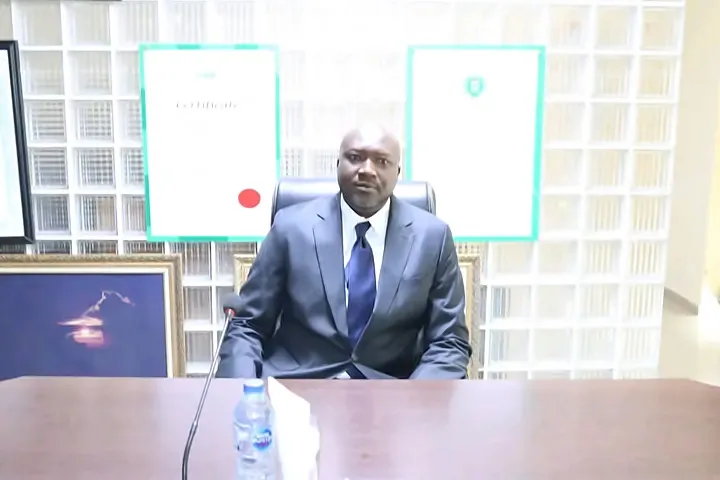
By Adedapo Adesanya
The Senate has asked President Bola Tinubu to remove the Registrar General of the Corporate Affairs Commission (CAC), Mr Hussaini Ishaq Magaji, from office.
The Senate Committee on Finance, while passing a resolution in Abuja on Thursday, accused Mr Magaji, a Senior Advocate of Nigeria (SAN), of failing to honour the Senate’s invitations to account for the finances of his agency.
“He refused on so many occasions to honour our invitation to appear before this committee.
“We have issues with the reconciliation of the revenue of CAC.
“Each time we invite him, he gives us excuses,” the Chairman of the committee, Mr Sani Musa, said as the committee passed the resolution.
CAC was part of a group of agencies that the House of Representatives Public Accounts Committee (PAC) recommended zero allocation for the year 2026, for allegedly failing to account for public funds appropriated to them.
The committee, at an investigative hearing held two weeks ago, accused CAC and some other ministries, departments and agencies (MDAs) of shunning invitations to respond to audit queries contained in the Auditor-General for the Federation’s annual reports for 2020, 2021 and 2022.
The PAC chairman, Mr Bamidele Salam, stated that the National Assembly should not continue to appropriate public funds to institutions that disregard accountability mechanisms, saying this will create fiscal discipline and strengthen transparency across federal institutions and conform with extant financial regulations and the oversight powers of the parliament.
“Public funds are held in trust for the Nigerian people. Any agency that fails to account for previous allocations, refuses to submit audited accounts, or ignores legislative summons cannot, in good conscience, expect fresh budgetary provisions. Accountability is not optional; it is a constitutional obligation,” he said.
-

 Feature/OPED6 years ago
Feature/OPED6 years agoDavos was Different this year
-
Travel/Tourism10 years ago
Lagos Seals Western Lodge Hotel In Ikorodu
-

 Showbiz3 years ago
Showbiz3 years agoEstranged Lover Releases Videos of Empress Njamah Bathing
-

 Banking8 years ago
Banking8 years agoSort Codes of GTBank Branches in Nigeria
-

 Economy3 years ago
Economy3 years agoSubsidy Removal: CNG at N130 Per Litre Cheaper Than Petrol—IPMAN
-

 Banking3 years ago
Banking3 years agoSort Codes of UBA Branches in Nigeria
-

 Banking3 years ago
Banking3 years agoFirst Bank Announces Planned Downtime
-

 Sports3 years ago
Sports3 years agoHighest Paid Nigerian Footballer – How Much Do Nigerian Footballers Earn




